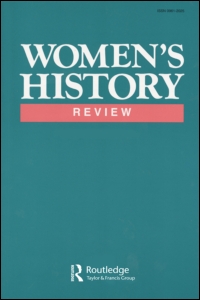
Women's History Review
Volume 10, Issue 1, Mar 2001
Pages 71-92
- DOI: 10.1080/09612020100200279
- Print ISSN: 0961-2025
- Online ISSN: 1747-583X
Abstract
The Act of Union of 1800, establishing Westminster control over Irish affairs, had important repercussions for the development of feminism within nineteenth-century Ireland, as well as contributing towards adifferentiation of Irish from British feminism. Feminism within Ireland was shaped by class, religion and racial identification: one strand followed theBritish model of Protestant philanthropy, while the other was concerned with asserting women's right to take part in nationalist political struggle. ‘Imperial’ feminists in Britain and Ireland, concerned with establishing their right to take part in the affairs of the ‘nation’, perceived those Irish who rejected British imperial rule as uncivilised, reserving sympathy for those whose economic position was threatened by the activities of those who campaigned against the landlord system. The period of the Land War of 1879–82 illustrates these conflicting discourses. The subsequent decline of imperial power in Ireland can be traced through a gradual change within Irish feminism from an initial support for the Union to a later embrace of nationalism, as young middle-class women, many from Catholic backgrounds, became involved in the movement